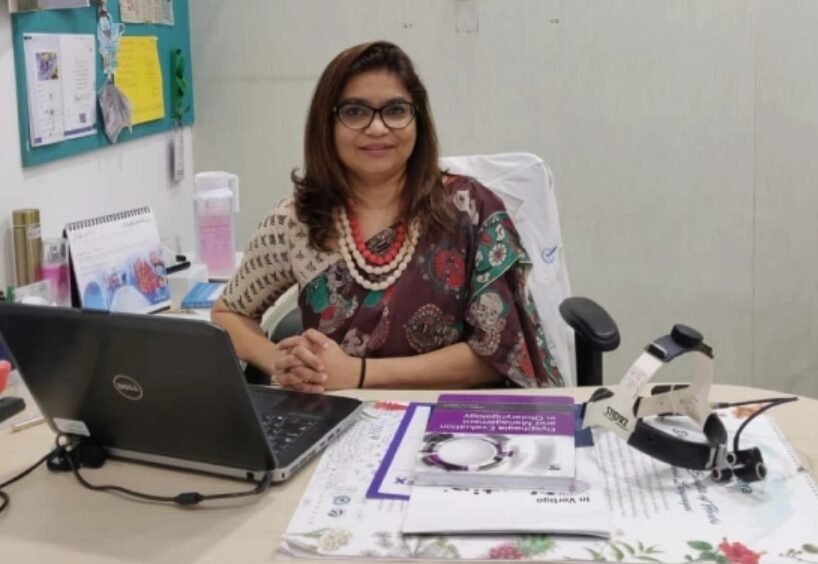
As a medical journalist, my work often brings me into the heart of rapidly advancing medical disciplines, especially in areas like Vocal Cord Cancer Treatment in Mumbai. Few fields have evolved as thoughtfully and urgently as vocal cord oncology, making Vocal Cord Cancer Treatment in Mumbai a critical subject for both patients and clinicians. The voice, though often taken for granted, shapes identity, communication, and livelihood. When affected by disease—especially cancer—it demands precision, compassion, and multidisciplinary expertise. To explore this further, I visited Dr. Shama Kovale, a respected ENT and Head & Neck surgeon widely known for her methodical approach to vocal cord cancer care.
Dr. Shama Kovale’s Qualifications, Experience, and Clinical Environment
Dr. Shama Kovale completed her MBBS and MS in ENT & Head-Neck Surgery from reputable Indian institutions, followed by advanced training in microlaryngeal surgery and voice conservation techniques. With more than 15 years of clinical experience, she has worked across high-volume government hospitals and private tertiary care systems, giving her deep exposure to both early and advanced stages of laryngeal cancers.
Her clinic, integrated within a multi-specialty hospital setup, is equipped with fiber-optic laryngoscopy, videostroboscopy, and on-site cytopathology services—tools essential for accurate and timely diagnosis. The environment is structured yet calm, a balance especially beneficial for patients facing the anxiety of voice-related conditions.
During my discussion with her, Dr. Kovale emphasized that early diagnosis significantly influences survival rates. “Patients often ignore persistent hoarseness, attributing it to lifestyle or weather,” she noted. “But for smokers, teachers, singers, and public speakers, persistent hoarseness is a red flag.”
It was this perspective that showcased how Vocal Cord Cancer Treatment in Mumbai now combines high-end imaging, organ-preserving surgery, and personalized rehabilitation to support long-term voice outcomes.
Understanding Modern Approaches to Vocal Cord Cancer Treatment in Mumbai
Vocal cord cancer treatment is not a single-path approach; rather, it involves options tailored to disease stage, patient needs, and voice-related demands.
1. Early-Stage Management:
- Transoral Laser Microsurgery (TLM):
A minimally invasive technique where lasers precisely remove cancerous tissue while preserving healthy structures.
Pros: Faster recovery, minimal scarring, outpatient basis
Cons: Not suitable for advanced tumors - Radiation Therapy:
Often recommended for early and select intermediate cases.
Pros: Organ preservation, good voice outcomes
Cons: Long treatment duration; side effects like mucosal dryness
2. Advanced Disease:
- Partial Laryngectomy:
Removes a section of the larynx while preserving speech and swallowing.
Pros: Retains natural voice (though altered)
Cons: Requires structured rehabilitation - Total Laryngectomy:
Recommended only when cancer is extensive or recurrent.
Pros: Highest oncologic control
Cons: Permanent stoma; requires voice prosthesis
Dr. Kovale underscored that treatment is not merely about eradicating cancer but also about preserving quality of life—voice, communication, and swallowing.
Doctors with Similar Expertise
To offer a balanced, global understanding, I explored two additional expert viewpoints.
Dr. Sanjay Kulkarni
A well-known Head & Neck surgeon, Dr. Kulkarni focuses heavily on organ-preservation strategies.
Dr. Laura Stein
A globally recognized laryngeal oncologist, Dr. Stein integrates molecular profiling into her cancer treatment plans.
Approximate Cost Range:
- Initial Consultation: ₹800 – ₹1500
- Laryngoscopy & Imaging: ₹3000 – ₹7000
- Transoral Laser Surgery: ₹60,000 – ₹1,50,000
- Radiation Therapy (Complete Course): ₹1,50,000 – ₹3,50,000
- Total Laryngectomy: ₹2,00,000 – ₹4,50,000
Precautions and Aftercare: Advice Shared by the Doctors
Before Treatment:
- Avoid smoking and alcohol immediately upon the onset of hoarseness
- Complete all required imaging and cytology tests
- Maintain adequate hydration and rest the voice
After Treatment:
- Follow strict voice rest for the recommended period
- Attend speech therapy sessions regularly
- Report symptoms like breathing difficulty, bleeding, or new hoarseness immediately
- Follow dietary guidelines, especially after partial or total laryngectomy
- Regular follow-ups every 3 months in the first year
One shared message was clear: recovery depends not just on surgical precision but on dedicated rehabilitation.
A Journalist’s Final Reflection
Covering vocal cord cancer has reinforced my belief in early evaluation and specialized care. The voice is central to human expression, and its protection requires timely action, not hesitation. During my interaction with Dr. Shama Kovale, I saw a blend of scientific precision and patient-focused empathy—qualities essential in today’s complex healthcare landscape.
If you or someone you know notices persistent hoarseness lasting beyond three weeks, consider seeking structured evaluation. Hospitals like Kokilaben Dhirubhai Ambani Hospital and Medical Research Institute – +91 91528 50769 offer multidisciplinary pathways that can bring clarity at the right time. As a journalist observing India’s evolving medical ecosystem, I would personally recommend consulting an experienced ENT or head & neck surgeon early, especially for those concerned about Vocal Cord Cancer Treatment in Mumbai, because timely intervention often defines the outcome.
